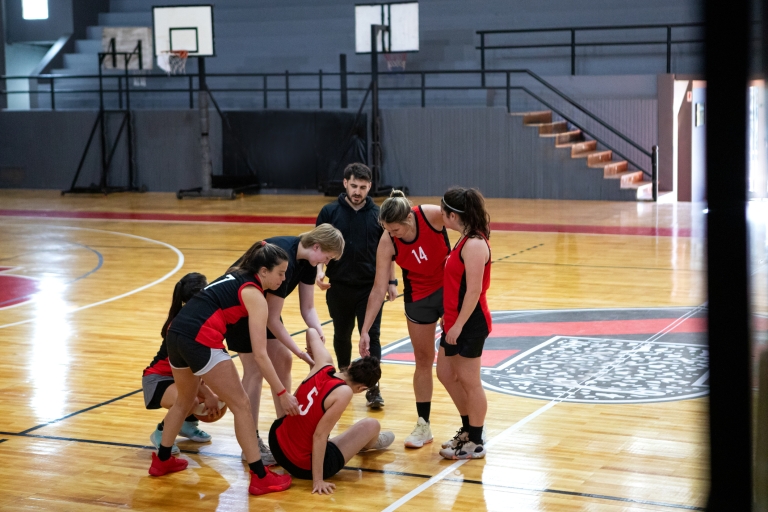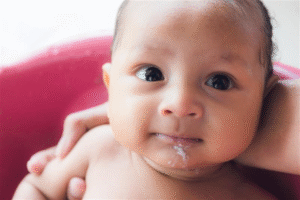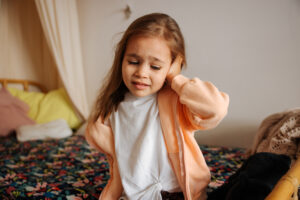when to be concerned about fainting during sports
Fainting (also called syncope) can be scary, especially when it happens during a sports game or practice. In many cases, fainting is caused by something harmless, like standing too long in the heat or not drinking enough water. But in others, it may be the body’s way of signaling a more serious medical issue. If your child passed out while playing a sport, you’re not alone in wondering what to do next.

what causes fainting in kids during sports?
Fainting happens when there’s a sudden drop in blood flow to the brain. That can be triggered by several things, including:
- Dehydration
- Overheating or exertion
- Standing up too quickly
- Low blood sugar
- Skipping meals before practice
- Anxiety or emotional stress
- Certain medications
- Heart rhythm issues or other cardiac conditions
For active kids, fainting in sports often happens when they’ve been running hard, haven’t had enough to eat or drink, or are in a hot environment. But that’s not always the case, which is why it’s important to look at the full picture.
is fainting in a child serious?
Most of the time, a single fainting episode is not dangerous, especially if your child quickly wakes up, feels normal afterward and has no other symptoms. But in some cases, fainting can be a warning sign.
Fainting during exercise (not after), fainting with chest pain, or fainting with a family history of heart issues could be linked to an underlying heart condition. That’s why pediatricians take fainting seriously and may recommend follow-up tests just to be safe.
So, is a child fainting serious? It can be. Especially if it happens repeatedly or during physical activity.
signs that suggest fainting may be a red flag
While fainting itself can seem dramatic, the surrounding symptoms matter most. Call your child’s pediatrician if they faint and experience any of the following:
- Chest pain or pressure before or after fainting
- Fainting while actively running or exercising
- Shortness of breath or irregular heartbeat
- Confusion or slow recovery after waking
- Seizure-like movements
- Pale or bluish skin
- Family history of heart disease or sudden cardiac death
Even if your child says they’re fine, don’t brush it off. Some heart-related conditions can go unnoticed until triggered by exercise or stress.
when to see a doctor after fainting
You should schedule a follow-up visit with your pediatrician or pediatric cardiologist if:
- This isn’t the first time your child has fainted
- The fainting happened during physical activity
- Your child doesn’t remember what happened
- They had warning signs like dizziness, vision changes or nausea
- You have concerns about how they looked or behaved afterward
Your child’s doctor may ask for a detailed history of the event, including when and where it happened, how long your child was unconscious, and how quickly they recovered. If your child has had multiple episodes, you may be referred to pediatric cardiology.
tests and diagnosis
If cardiology thinks there could be an underlying issue, they may order tests such as:
- EKG (electrocardiogram) to check the heart’s electrical activity
- Echocardiogram to look at the structure and function of the heart
- Exercise stress test to monitor how the heart responds to activity
- Blood work to rule out anemia or electrolyte imbalances
- Tilt table test to evaluate how the body responds to changes in position
These tests help rule out conditions like arrhythmias, structural heart problems or other issues that might cause fainting during sports.
return to play after fainting
One of the biggest questions parents and coaches have is whether a child can safely return to sports after fainting. That depends on the cause.
If the fainting was due to something like heat or dehydration and your child is otherwise healthy, they may be cleared to return once they’ve recovered and are rehydrated.
But if there’s any question about a cardiac cause, your child should not resume sports until they’ve been fully evaluated by a doctor.
It’s essential to work with your pediatrician or cardiology to determine a safe return-to-play timeline. Your child may also need an individualized plan to avoid future episodes, like making sure they eat a good meal before practice or take frequent water breaks.
pediatric care for fainting at Dayton Children’s
You may be referred to see a pediatric cardiologist. At Dayton Children’s, our cardiologists are trained to evaluate children who have experienced fainting once or are experiencing ongoing symptoms, and help families understand the next steps. Schedule an appointment online with one of our pediatric cardiologists or call 937-641-4000.
worried about a symptom? we’re here to help.
From everyday issues like coughs or pink eye to more serious concerns like diabetes or asthma, we help you understand what’s typical — and when to be concerned or find care now. Get expert guidance on your child’s symptoms and conditions from your trusted partner in pediatric care.




